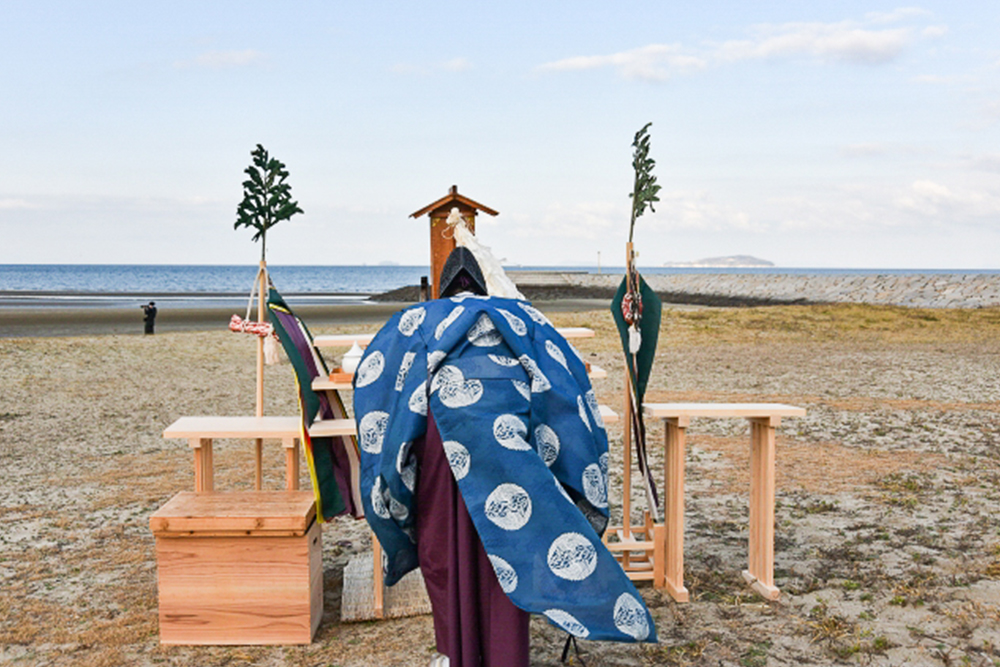During the Shinto rituals at a shrine, a statement (or lyric, speech) is presented to the enshrined gods in praise of their divine virtue and to express veneration for them. This statement is called a “Norito”. In general, the “Kannushi(Guji)” who is the person in charge of the ritual will present it. Of course, the content of the “Norito” varies depending on ritual events held. Roughly speaking, the content is to convey the reason and purpose of the “ritual” to the “ritual god”. The writing style of the statement is usually in the national old writing style called “Senmeisyo”. It is similar to a style of writing called “Yamato-Kotoba,” which is quite different from the Japanese used by modern Japanese people in their daily lives. And more, it is recited in a very unique style, which is quite special and solemn even for Japanese people. This is even more so because it was meant to be presented to the gods as well as to make sure that the sacred content was properly heard by those who attended.
“Norito” can be broadly categorized as follows.
・”Norito”:
Congratulatory statements in the narrow meaning of the term. These are the statements that are played when offering food and other offerings to enshrine the gods.
・”Haishi”:
These are the statements that are played when worshipping the gods without holding a public events.
・”Yo-Haishi”:
A statements used when worshipping a remote deity who is not present, especially among the “Haishi”.
・”Harae-Kotoba”:
These are the statements that are presented to the gods when conducting rituals related to purification.
・”Saishi”:
These are the statements that are presented in front of the gods by “Kempei-shi” at “Rei-sai(regular rituals)”, “Chinza-Sai”, and “Shikinen-Sai”. “Kenpeishi” is an emissary from the “Jinja-Honcho(Shrine Headquarters)”, who offers money for the offering of “Heihaku-ryo” at the annual festivals of each shrine. All shrines in Japan are under the control of the “Jinja-Honcho”.
※”Chinza-sai” is one of the rituals to invite the gods to come and stay. “Sikinen-sai” is one type of memorial service in Shinto.
・”Otsuge-Bumi”:
This is the statement that Tenno himself presents to the gods when he conducts the ritual event.
・”Go-Saimon”:
The statements that an imperial messenger presents to the gods. “Imperial envoy” refers specifically to an envoy sent by Tenno.
・”Sakumyoubun”:
A statement played during rituals at mountain ridges, tombs, and graves.
In Japan, there has been a belief in “Kotodama(word spirits)” since ancient times. The thought is that each “word” has its own “power,” and each word has some kind of effect when it is uttered or written. In other words, “Japanese Shinto” is a culture that places a great deal of importance on “words”. These “Norito” are very important and sacred, because they are the words that we say to the gods, right? “Norito” are always performed in all kinds of Shinto rituals, such as Shinto weddings and ceremonies to ward off evil spirits, not to mention the annual rituals described above. If you have the opportunity, we hope you will experience it.




